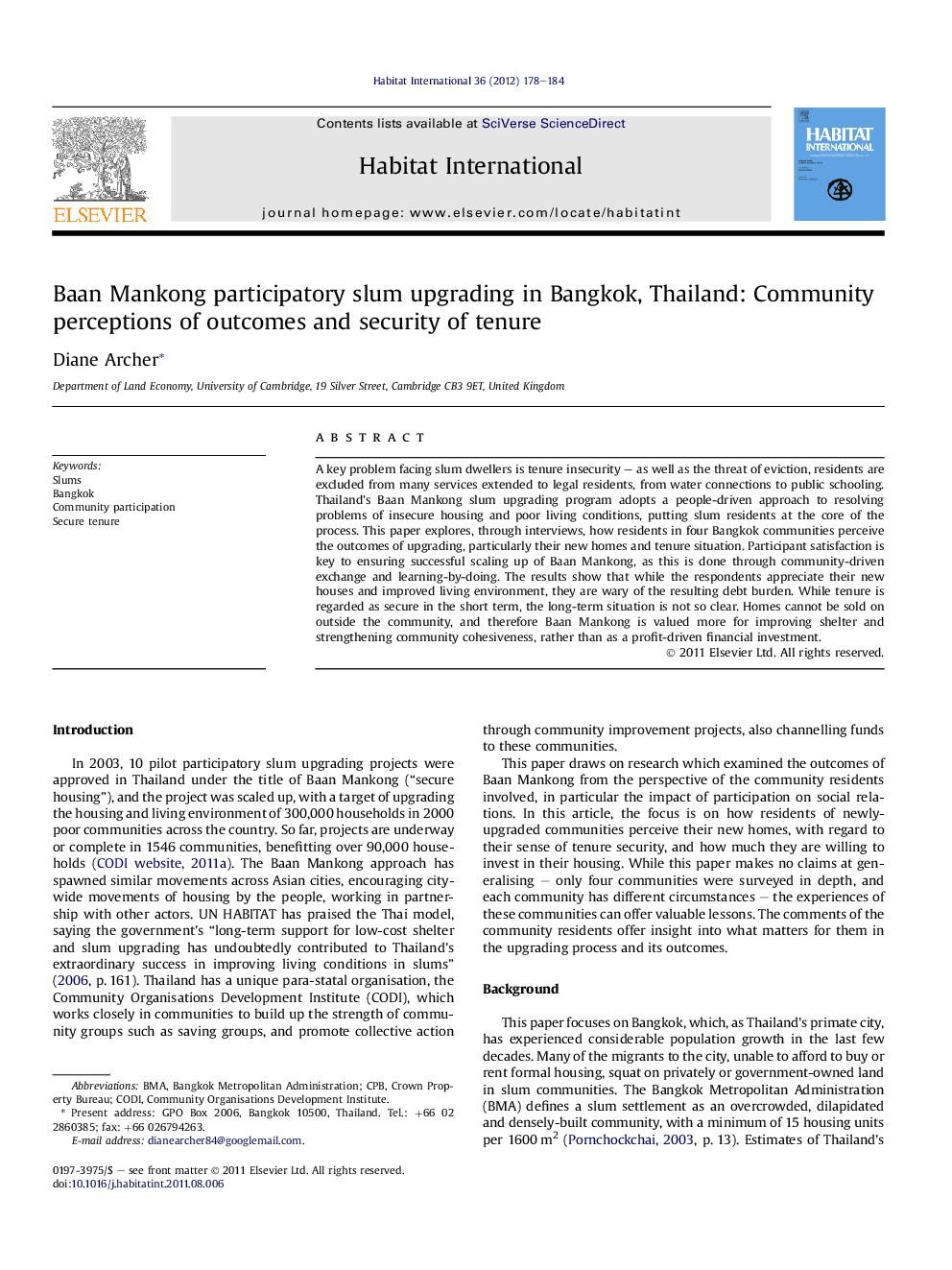| Article ID | Journal | Published Year | Pages | File Type |
|---|---|---|---|---|
| 1048133 | Habitat International | 2012 | 7 Pages |
A key problem facing slum dwellers is tenure insecurity – as well as the threat of eviction, residents are excluded from many services extended to legal residents, from water connections to public schooling. Thailand’s Baan Mankong slum upgrading program adopts a people-driven approach to resolving problems of insecure housing and poor living conditions, putting slum residents at the core of the process. This paper explores, through interviews, how residents in four Bangkok communities perceive the outcomes of upgrading, particularly their new homes and tenure situation. Participant satisfaction is key to ensuring successful scaling up of Baan Mankong, as this is done through community-driven exchange and learning-by-doing. The results show that while the respondents appreciate their new houses and improved living environment, they are wary of the resulting debt burden. While tenure is regarded as secure in the short term, the long-term situation is not so clear. Homes cannot be sold on outside the community, and therefore Baan Mankong is valued more for improving shelter and strengthening community cohesiveness, rather than as a profit-driven financial investment.
► Scaling up of participatory slum upgrading is largely community-driven. ► Satisfaction in housing outcomes determines willingness to participate in up-scaling. ► Residents in 4 Bangkok slum communities were interviewed about upgrading outcomes. ► Respondents are generally satisfied with results, though they face a debt burden. ► Most feel they have secure tenure, though there is confusion over its duration.
